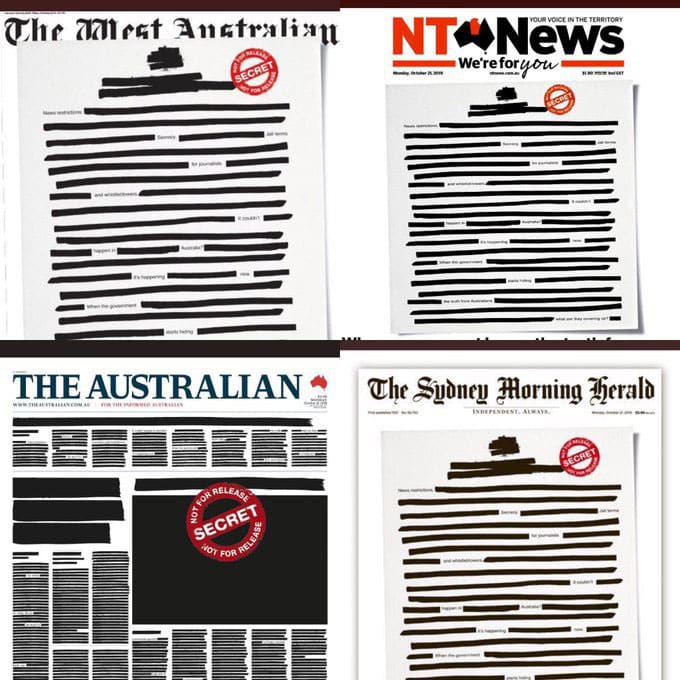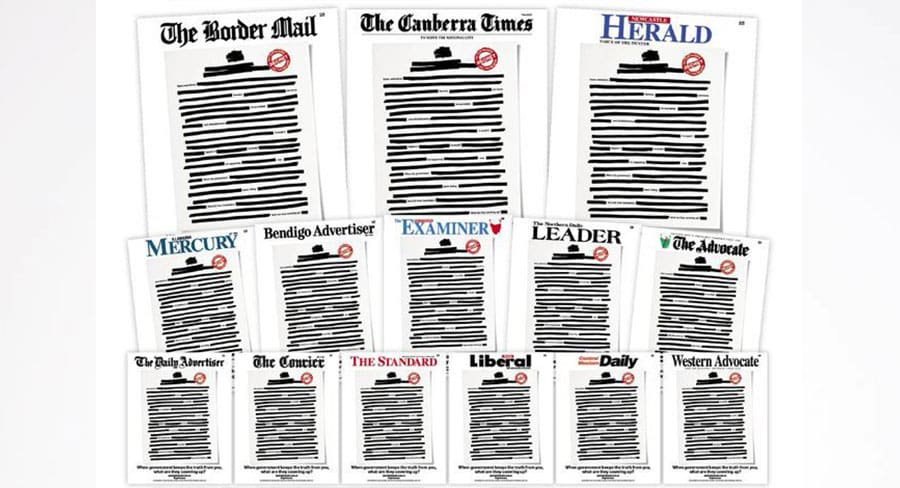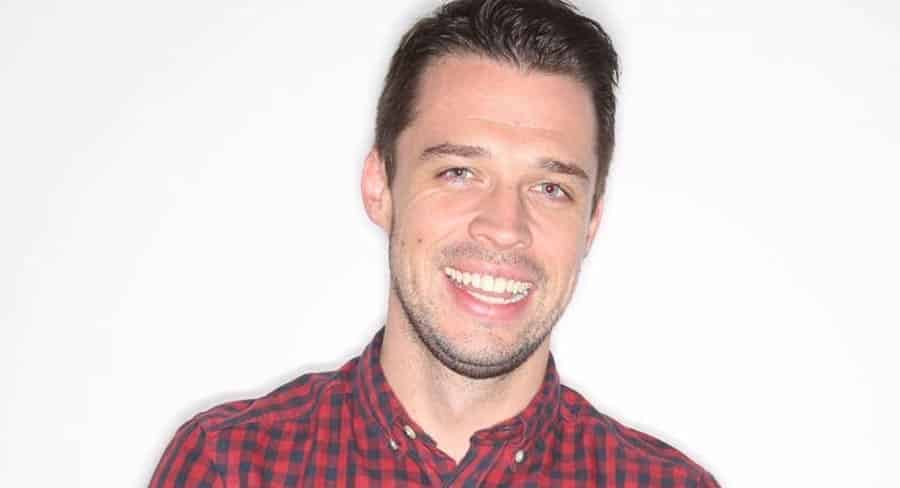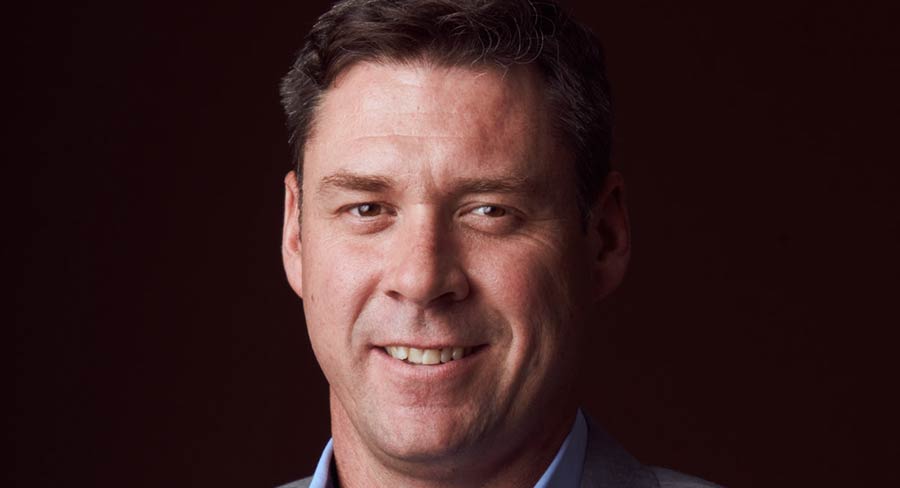Business of Media
Bauer poised to acquire Pacific Magazines in $40m deal
For years, Bauer Media’s executives who have walked the offices of Sydney’s 54 Park Street have considered the acquisition of arch-rival Pacific Magazines as “water-cooler” conversation – rumoured and discussed, but never a reality, reports The Australian’s Zoe Samios.
Even when The Australian asked Bauer’s new chief executive Brendon Hill earlier this year about such a deal, he joked it off.
“There’s been talks for 10 years,” Hill said.
But as early as this week Bauer is expected to acquire Pacific from Seven West Media, in a deal believed to be worth $40m. This will see fierce magazine competitors from Bauer’s The Australian Women’s Weekly, Woman’s Day and Elle, and Pacific’s New Idea, Marie Claire and Women’s Health and Men’s Health together under one roof.
Seven West’s Prime Media deal keep Stokes’ promises
Seven West Media’s scrip-based takeover of regional TV group Prime Media is a great example of the Stokes family fulfilling two of its key promises around its media interests, reports The AFR’s James Thomson.
When the family appointed new chief executive James Warburton in August, it made it clear it was willing to back his push to drive consolidation through mergers and acquisitions. Warburton was specifically brought in to change the narrative around Seven West Media and he’d have the Stokes family’s full support.
But as Seven Group Holdings chief executive Ryan Stokes told Chanticleer at the time, Warburton wouldn’t be getting any capital to make his changes. He’s needed to get creative.
By using Seven West’s scrip to grab Prime Media, Warburton has shown he can meet the family’s dual riding instructions.
Hoyts invests big to build cinema experience in streaming era
Hoyts chief executive Damian Keogh believes the cinema industry needs to evolve and invest heavily to create experiences in the battle for eyeballs against streaming services such as Netflix, Stan, Disney+ and Amazon Prime, reports The AFR’s Max Mason.
Hoyts has spent significant money, more than $300 million, upgrading its cinemas across Australia and New Zealand, to add features including bars, cafes and luxury seating, Keogh said.
“We introduced the recliners at the back end of 2015 into Australia where we renovated, took out all the seats, lost about half our capacity, put in power recliners in every seat, and we kept the ticket price the same so that the focus was very much on the value equation for the customer and the customer experience,” Keogh told The Australian Financial Review.
Cinemas now compete against the so-called golden age of television, where content, of both TV shows and movies, is readily available on streaming services at a monthly price that’s often cheaper than a single movie ticket, all in the comfort of a consumer’s home.
With Hoyts turning 110 years old last month, Keogh said the investment is to “create the cinema of the future”, one that keeps people coming into the movies over the long-term.
Nine, Deloitte sharpen pencils on Macquarie Radio cost savings
Nine Entertainment Co has sent senior managers and Deloitte consultants into the offices of 2GB-owner Macquarie Media to find $11 million in savings promised to investors following the television broadcaster’s takeover of the radio network, reports The Sydney Morning Herald’s Jennifer Duke.
Major changes at Macquarie are expected in about three weeks, with discussions about staffing, backroom operations, sales and overall cost cuts now underway.
The integration work has unsettled some staff within the radio company’s Sydney office, with several sources raising concerns about redundancies and potential future changes. Macquarie’s Brisbane office has also been visited by senior Nine staff members as the deal progresses.
Seven wins revenue share in September amid tough advertising market
Seven West Media secured the biggest share of advertising market dollars in September with 42 per cent of revenue, despite rival Nine Entertainment Co attracting the most viewers over the month, reports The Sydney Morning Herald’s Jennifer Duke.
ThinkTV data provided by a media industry source found Seven won the month with 41.9 per cent of commercial free-to-air advertising revenue followed by Nine at 38.4 per cent.
Network 10 tallied up 19.7 per cent of advertising spend, despite launching ratings winner The Masked Singer on September 23.
For the month before Nine had a 43 per cent share, Seven had 35.9 per cent and 10 had 21.1 per cent. Nine was airing The Ashes cricket series in August. Television lobby group ThinkTV’s members include Seven, Nine, Ten and Foxtel Media.
News Brands
Right To Know takes over newspaper front covers across Australia
Media companies launched the Right To Know campaign in TV ads on Sunday night. Radio ads are also part of the campaign which also includes front pages of newspapers today from all publishers.
News Corp Australia executive Michael Miller writes in The Australian today:

For years, governments, courts and public authorities have been building a great wall to keep much of what they do a secret and using legislation to make it a criminal offence for media to tell you.
In fact, at least 75 pieces of legislation introduced since 2001 have created roadblocks to stop you finding out what’s going on in this country.
This is why every major media company in Australia has come together this Monday to launch a campaign for your right to know.
I urge all Australians to visit the website yourrighttoknow.com.au to read a litany of issues the government is keeping secret.
Watch the Right To Know TVC here.
Media companies form united front across Australia in fight for freedom
The nation’s media companies have censored their own front pages in a united call for greater media freedom following a sustained attack on the rights of journalists to hold governments to account and report the truth to the Australian public, reports The Australian’s Leo Shanahan.
Spurred by an AFP raid on the home of News Corp journalist Annika Smethurst on June 4 and another raid targeting journalists at the ABC headquarters a day later, more than a dozen of the nation’s top mastheads, TV and radio stations, and websites have taken the unprecedented act of protest against increasing restrictions on the freedom of the press.
The Your Right to Know campaign will be accompanied by radio and television advertising across the country asking the public: “When the government hides the truth from you, what are they covering up?”
‘Right to know’ campaign not just for journalists
The Herald, along with most other Australian newsrooms, is today launching an unprecedented campaign for greater press freedom, says an editorial in The Sydney Morning Herald.
Devoting so much space in our newspaper and website to the Your Right to Know campaign is not a decision we take lightly. There are any number of critical economic, environmental and social policies our journalists will continue to cover. We are not suggesting press freedom is an issue that trumps, say, our government’s response to climate change.

Nor do we dismiss reader scepticism about a campaign by the media that seeks to change some of the laws that govern the conduct of journalists, even though we argue these changes would make it easier for us to obtain information in the public interest and protect sources. This masthead is not above scrutiny any more than the institutions or individuals it has written about for the past 185 years.
Regional publishers win $9 million in federal grants in fight for survival
The Morrison government has given more than 60 small and regional publishers across Australia $9 million to improve their websites, employ more journalists and launch digital strategies to stay afloat, reports The Sydney Morning Herald’s Jennifer Duke.
The Regional Grant Opportunity program, which forms part of a $60 million fund for regional and smaller publishers launched in 2017, received 113 applications in the latest round and is overseen by the Australian Communications and Media Authority.
About half of the 62 successful grant recipients had pitched to use the funds to build or redevelop their websites, with several others boosting digital strategies including by developing podcasts, multimedia content and online classifieds.
There were 18 businesses given funding in NSW, 24 in Victoria, 12 in Queensland, three in Tasmania, two in South Australia and one each in Western Australia, Canberra and the Northern Territory. Of all the projects presented for grants, 25 were fully funded and 37 were partly funded.
Among the successful applicants in the first round was Eric Beecher‘s Private Media, including Crikey and public service-focused The Mandarin. The Saturday Paper, Star News Group and Women’s Agenda, with the majority of those receiving grants located in Victoria.
Television
Breakfast overhaul: The Nine favourite who could be next Today host
Ali Langdon’s star and fortune is expected to rise in future months following the 60 Minutes glamour girl’s 11th-hour appointment as host of Nine’s Upfronts showcase on Wednesday, reports News Corp’s Annette Sharp.
Sources claim that for weeks it was Today host Deb Knight’s name listed on the running order for what turned out to be a rather boring and cheaply catered-for event of sales pitching and Lego displays.
The day before, Knight, we hear, was taken aside and told she had been replaced in the role by Langdon. Our sources say the news came as a blow to Knight.
Langdon has long been favoured as a future Today show host and with Nine expected to replace either Knight or her co-host Georgie Gardner – or both – at year’s end, rumours have surfaced that Langdon could once again be in executives’ sights.
Radio
Triple M Brisbane appoints new content director to replace Rex Morris
Triple M network head Mike Fitzpatrick has announced the appointment of Scott Menz as content director for Triple M Brisbane, effective Monday 21st October.
Menz has been with Triple M Brisbane since 2013 and has worked as both executive producer of the Big Breakfast on Triple M and most recently as assistant content director.

“You’d be hard pressed to find a more passionate radio guy than Scott Menz. He’s been involved in this industry since before he’d even left primary school. I have no doubt Triple M Brisbane is in very capable hands with Scott,” Fitzpatrick said.
Said Menz, “I’m incredibly thrilled to be leading a team of brilliant people, on and off the air, at Triple M Brisbane. This station’s history of success in Brisbane is not lost on me, so I consider myself lucky to steer the ship into 2020 and beyond.”
Menz replaces Rex Morris who moves to Triple M Sydney as content director.
Nick Tabakoff: Top rating 2GB announcer to depart over contract clauses
More drama at the Nine-owned 2GB yesterday, after George Moore announced he would leave at the end of the year, reports The Australian’s Nick Tabakoff.
Moore is one half of 2GB’s George and Paul show, which dominates the Sydney weekend radio ratings.
Moore told The Australian he “wouldn’t sign the contract that management wanted me to sign,” because it featured a “limited indemnity” clause.
More to come on this one, added Monday columnist Tabakoff.
Matty Johns linked to vacant breakfast slot on Sydney station
There is very strong mail that the face of Fox Sports, Matty Johns, is interested in joining the Big Sports Breakfast radio show next year alongside Laurie Daley, a man he admires greatly, reports News Corp’s Phil Rothfield.
Johns has had a year off radio since quitting the Triple M Grill team but has freshened up and is apparently keen to have another crack. He would replace veteran Terry Kennedy, who stood down last week after 18 solid years.
Annette Sharp: TV and radio networks circle in-demand Carrie Bickmore
Carrie Bickmore is shaping up as the hottest signing of 2020 with television and radio networks clamouring for the star’s signature, reports News Corp’s Annette Sharp.
Bickmore was scheduled to meet with 10 bosses last week to ink a new contract and discuss her future with the broadcaster as co-host of The Project.
Meanwhile, radio network Southern Cross Austereo (SCA) has separately doubled its efforts to woo Bickmore to the breakfast slot on the embattled 2Day FM station claim station insiders.
Bickmore, who currently hosts a weekday drive radio program with Tommy Little from her Melbourne home town on SCA’s Hit FM, has been offered the struggling breakfast show on the network following the axing of breakfast team Grant Denyer, Ed Kavalee and Ash London in August.
And then there remains the approach from 10’s rival Nine who sounded the star out to co-host its troubled breakfast show, Today, with Karl Stefanovic.
Nine later denied The Sunday Telegraph’s report that Bickmore would join Stefanovic at the helm of Today in 2020, however this newspaper stands by the report and the claim, made subsequently in Woman’s Day magazine, that the approach to Bickmore came at embattled Stefanovic’s own suggestion.
Sports Media
Bruce McAvaney calls for “immediate action” on retired racehorses
Broadcasting icon Bruce McAvaney delivered an editorial on Saturday as Seven telecast The Everest at Royal Randwick and the Caulfield Cup in Melbourne, reports TV Tonight.
His comments follow horrific footage of horse slaughter in abattoirs, on ABC’s 7.30.
“Thursday night’s ABC expose of what happens to some retired racehorses calls for immediate action,” McAvaney said.
“It was horrifying to watch. As a small-time owner it made me feel ashamed, and to not have known is not good enough.
“There has to be a way we all think going forward. The nurturing of our racehorses in retirement is just as important as the care and training given to a yearling or a four-year-old champion.
“It’s a complex issue that must be addressed as a priority. It’s going to require a unified approach nationally, across all levels of the industry.
“Horse racing can be the very best of sports, a magnificent spectacle where the thoroughbred, the strapper, the jockey, the trainer and the owner unite in a thrilling performance.”
